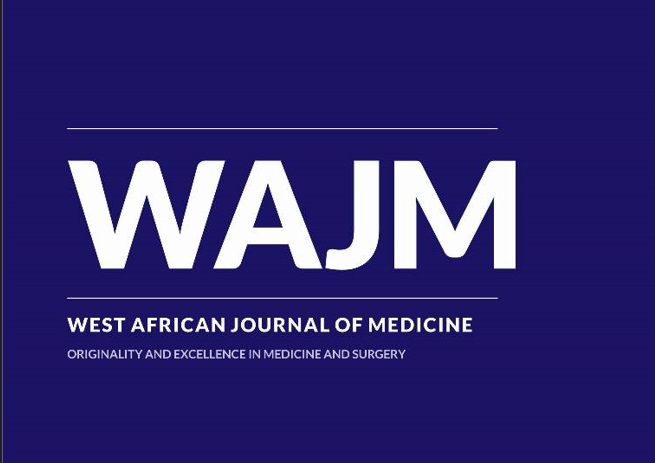ORIGINAL: Predictors of Bacterial Co-Infection and Outcome in Children with Severe Malaria in Ilorin, Nigeria
West Afr J Med. 2021 Mar 22; 38(3):274-281. PMID: 33765761
Keywords:
Bacteraemia, Severe malaria, Children, IlorinAbstract
Background: Severe malaria is a significant cause of morbidity and mortality in Nigeria and concomitant bacteraemia may potentially worsen clinical outcomes. (Duration of admission, Mortality, Fever clearance time and Coma recovery time).
Objectives: This study aimed at identifying the proportion of children with severe malaria who had concomitant bacteraemia, the pathogens implicated and their drug sensitivity pattern, predictors of bacterial co-infection and its effect on treatment outcome.
Methods: This was a hospital-based cross-sectional study at the Emergency Paediatric Unit of the University of Ilorin Teaching Hospital, Nigeria. The subjects were children aged 6 months to 14 years with severe malaria and microscopy confirmed parasitemia at admission. All subjects had blood culture samples drawn at admission for identification of bacterial isolates. Relevant clinical and laboratory parameters were recorded on case proformas.
Results: A total of 944 children were admitted into the Emergency Paediatric Unit during the study period with 176 (18.6%) managed for severe malaria. Of the 176 children with severe malaria, 41 (23.3%) had concomitant bacteraemia. Gram positive bacteria were the most common (70.7%) isolates with Staphylococcus aureus being the most predominant (65.9%). The bacterial isolates were mostly sensitive to Ciprofloxacin. Children with concomitant bacteraemia had a longer duration of admission (p = 0.028) and longer fever clearance time (p=0.015). Increasing duration of coma before presentation was the single independent predictor of bacteraemia (p= 0.010).
Conclusion: Severe malaria constituted a significant cause of admissions in UITH with approximately a fourth of the subjects having bacterial co-infection and this was associated with a worse prognosis (longer duration of admission and fever clearance time). Increased duration of coma prior to admission was the only predictor of the presence of bacteraemia in children with severe malaria. This highlights the importance of investigating for concomitant bacteraemia, especially in children presenting with coma.


